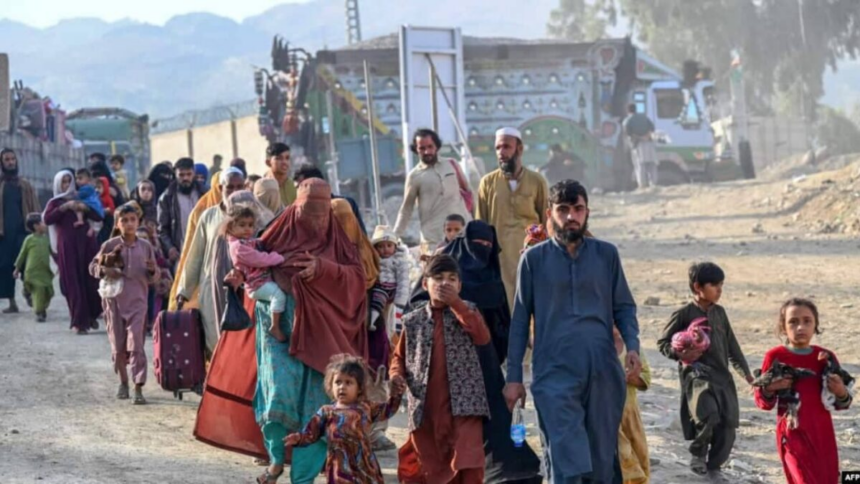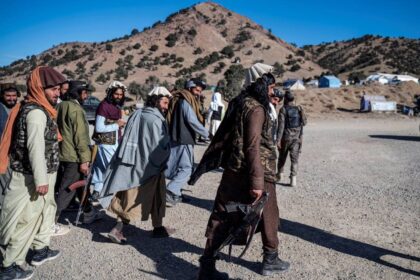RASC News Agency: As the blazing sun continues its relentless assault and no shade remains for respite, Afghanistan is gasping under the suffocating heat of its final summer weeks. But this is no ordinary seasonal heatwave. According to a new report from the United Nations Office for the Coordination of Humanitarian Affairs (OCHA), the rising temperatures mark not merely the peak of summer but the intensification of a full-blown climate emergency one that is threatening the survival of millions across the country. The report highlights that vast regions from the parched highlands of Badghis and Ghor to the dense settlements of Kabul and the fragile mountain systems of Badakhshan are experiencing abnormally high temperatures. These heat extremes, paired with the drying of fertile soil and an escalating water crisis, are triggering a cascade of disasters: the looming threat of famine, the decimation of crops, and the collapse of local agriculture one of the few economic lifelines that remain functional under Taliban misrule.
According to OCHA, June saw alarmingly low levels of rainfall combined with temperatures well above historical averages. The parched earth has cracked, and the country’s wheat fields already weakened by neglect and mismanagement no longer produce the yields of previous years. Meanwhile, Afghanistan’s essential snowpack reserves in the mountains, which serve as a crucial water source during the dry summer months, have seen an unprecedented decline. While communities across the country cling to hopes of future rainfall, the UN warns that an early and erratic start to the rainy season amplified by shifting monsoonal patterns may lead to widespread flooding. In areas where the soil can no longer absorb water, flash floods could devastate already fragile livelihoods. Livestock farmers, too, are facing a dire situation: pastures have turned to dust, and water sources are rapidly vanishing.
This unfolding ecological tragedy comes at a time when the Taliban regime, despite controlling the country for nearly four years, has failed to implement a single coherent environmental policy. Their governance marked by militarized priorities, ideological rigidity, and systemic exclusion of technical expertise has not only undermined disaster preparedness but has also actively dismantled the fragile institutional frameworks that once managed water, agriculture, and climate resilience. The United Nations Assistance Mission in Afghanistan (UNAMA) had earlier issued warnings about the intensifying heatwaves affecting the region, linking them directly to global climate change. But in Afghanistan, where basic governance has been replaced by Taliban edicts, the impact is magnified. The absence of climate adaptation strategies, early warning systems, or sustainable water management leaves communities defenceless in the face of extreme weather.
A recent report by the International Climate Change Research Institute declared 2025 one of the hottest years ever recorded globally, underscoring the devastating consequences for countries like Afghanistan, which lack both the infrastructure and the political stability to cope. The study warned that if the current trajectory continues, heat-related disasters will become the norm rather than the exception especially in nations where illegitimate rulers have no capacity or will to protect their people. Despite these dire warnings, the Taliban administration continues to sideline environmental priorities, offering neither leadership nor logistical support to provinces grappling with drought, food insecurity, or displacement. In areas like Herat and Faryab, local residents told media that appeals for assistance were met with silence or indifference from Taliban officials, who often lack the most basic scientific understanding of climate dynamics.
International observers argue that the climate crisis in Afghanistan is not merely a consequence of global warming but a compounded disaster intensified by the Taliban’s governance vacuum. “Climate vulnerability is always worse under regimes that suppress knowledge, ignore science, and abandon their own people,” said an environmental expert in Kabul, speaking anonymously due to security concerns. As temperatures rise and hope dwindles, millions of Afghanistani citizens now find themselves trapped between a rapidly deteriorating environment and a ruling regime that remains oblivious if not outright hostile to the looming catastrophe. In such a context, the climate crisis is not just a natural disaster, but a political one as well.






